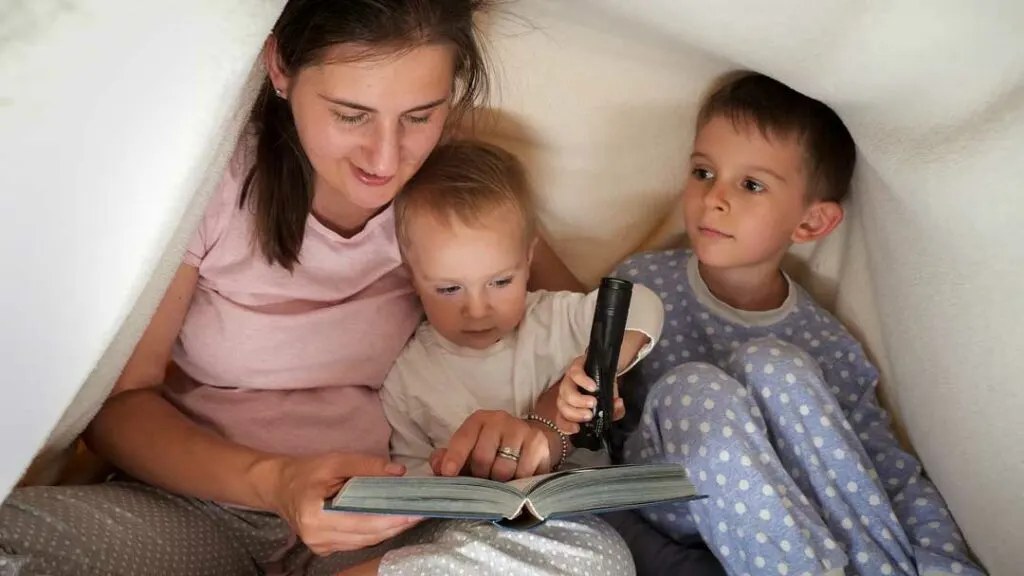Did you know parental involvement in early literacy is the key to unlocking your child’s reading potential? Start their journey to success today!
Reading with your child is more than a cozy activity; it’s a powerful way to shape their future. Parental involvement in early literacy is crucial for fostering language skills, building strong reading habits, and creating a lifelong love for learning. Let’s explore how you can support your child’s literacy journey effectively.
Parental Involvement in Early Literacy: Why It Matters

Reading together with your child is more than just a bedtime ritual or a way to pass the time. It’s a powerful tool for fostering early literacy and cognitive development. By actively participating in reading activities, you are laying the foundation for your child’s future academic success and strengthening their relationship with you.
Research highlights the numerous benefits of this practice. Reading with infants and young children not only enhances language skills but also promotes brain development and attachment, as supported by the American Academy of Pediatrics. This nurturing activity is an essential step towards school readiness and lifelong learning.
Incorporating a variety of books in your home and involving yourself in your child’s reading journey is crucial. The focus on parent involvement in early literacy demonstrates that your participation significantly impacts your child’s ability to acquire basic literacy skills, setting them up for success both in school and beyond.
The Impact of Parental Engagement

Parental engagement plays a crucial role in shaping children’s literacy and language development. By actively participating in their child’s reading journey, parents can significantly enhance language skills, establish consistent routines, and support language acquisition from an early age.
Strengthening Language and Literacy Skills
When you engage with your child during reading activities, you are not only sharing stories but also expanding their vocabulary and comprehension. Children exposed to rich and varied language through books often develop better literacy skills. Encouraging dialogue about the story can help them understand complex ideas. Such interactions form a strong foundation in both reading and writing, leading to improved academic performance.
Benefits of Consistent Reading Routines
Establishing a regular reading routine with your child can foster a love for books and learning. Consistency helps children anticipate reading time, making it a comforting part of their day. During these sessions, children develop listening skills and recognize patterns in language. Repeated exposure to words and their sounds, like ai in “rain” or ea in “bead,” promotes cognitive development and confidence in language use. Scheduling daily reading doesn’t just boost literacy; it strengthens the emotional bond between you and your child.
The Role of Parents in Language Acquisition
Your involvement is vital in helping your child acquire language skills during the early years. By engaging in reading and conversation, you provide essential language models and exposure. Introducing new words and phrases during reading times expands their linguistic repertoire. Discussing stories encourages them to express thoughts and ideas, which sharpens their communication skills. Combining shared reading experiences with real-world vocabulary helps prepare them for future educational success.
Creating a Supportive Reading Environment
Establishing a nurturing space for reading at home can foster early literacy skills. By designing an inviting reading area, curating a variety of books, and utilizing technology, you can create a dynamic environment that encourages your child’s love for reading.

Designing a Child-Friendly Reading Space
To create a welcoming reading space, consider furniture that is comfortable and appropriately sized for your child. A cozy chair or a soft rug can provide a sense of security and invite longer reading sessions.
Ensure the area is well-lit, ideally with natural light. Adding colorful cushions or bean bags can make the space more appealing. Display books at your child’s eye level to encourage them to explore independently, perhaps arranging them in open shelves or baskets for easy access.
Curating a Diverse Home Library
A diverse home library is crucial for developing a child’s interest in reading. Include books that reflect different cultures, languages, and experiences. This helps children learn about the world and fosters empathy.
Rotate the selection of books to introduce new themes and topics regularly. Consider including interactive books with flaps and textures for younger children. Including classic stories, picture books, poetry, and informational texts can help build a well-rounded collection.
Incorporating Technology in Reading
Technology can complement traditional reading by engaging children in interactive digital books and literacy apps. Choose age-appropriate apps that emphasize phonetics, vocabulary building, and comprehension.
E-readers can be useful tools, especially for older children, as they offer features like adjustable text size and built-in dictionaries. Limit screen time and supervise the content to ensure it aligns with educational goals. Using technology as a part of reading can also introduce children to vowel team patterns, enhancing their phonics skills.
Balancing screen-based reading with physical books can provide a diverse and enriching reading experience.
Boost Early Literacy Skills with Parental Engagement

Your role as a parent is vital in shaping your child’s literacy skills. Parental involvement in early literacy builds strong language foundations, fosters meaningful routines, and creates a nurturing environment for learning. By designing welcoming spaces, curating diverse libraries, and engaging in shared reading, you empower your child for future success. Start small but stay consistent—every story you read together brings your child closer to a brighter, more literate future.

Jessi is the creative mind behind The Coffee Mom, a popular blog that combines parenting advice, travel tips, and a love for all things Disney. As a trusted Disney influencer and passionate storyteller, Jessi’s authentic insights and relatable content resonate with readers worldwide.
